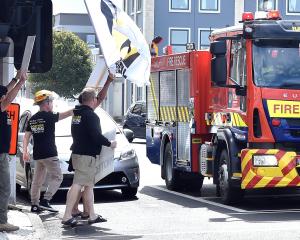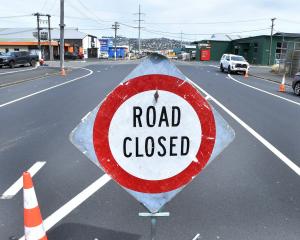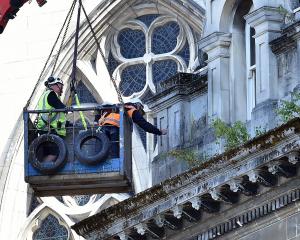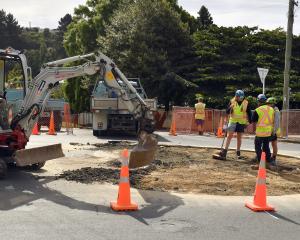Hundreds of people turned out to a public meeting for an update on issues affecting the water supply in Waikouaiti and Karitane tonight.
Southern DHB medical officer Dr Susan Jack told them nobody had a blood lead level that required hospitalisation, and very few had levels above the new threshold.
''It appears long term exposure to lead from the water supply is unlikely.''
She acknowledged the worry and concern in the community, which was reflected by the huge number of people who got blood tests.
Children in the area did show slightly higher blood-lead levels than the national average, but there was not a large amount of data and it was unclear if children's blood-lead levels were higher than should be expected.
Only two children were above the internationally recognised safe level for blood-lead, one of whom had an explanation for their level other than drinking water.
The other remained under investigation, she said.
There was no correlation between residents' blood-lead levels and where they lived along the area's water line.
People were still advised not to drink the water while testing continued.
A total of 1512 people were tested.

Meanwhile, no definitive answers were established as to the source of the elevated lead levels found in the area's water supply.
However, the Dunedin City Council believes three of the six elevated readings can likely be attributed to old piping.
Cast iron pipes around Edinburgh St in Waikouaiti were found to have lead fittings.
Approximately 6.5km of pipe is now being replaced in the area, at a cost of about $6 million.
The work is expected to be completed in June 2021.
Dunedin Mayor Aaron Hawkins said the council was working hard to ensure a clean, safe permanent drinking water supply was re-established as soon as possible.
“We know this situation has left people feeling anxious and upset, and we thank everybody for their patience. It has been tough, but we want to reassure everyone no stone is being left unturned as we work through this," he said.
In the meantime, investigations into other possible sources were continuing.
This included draining and testing sediment at the Waikouaiti raw water and Kiatoa reservoirs, which both supply affected communities. Both returned results well within acceptable standards.
Other potential sources of contamination suggested by the community were also being considered, including historic landfills (in the vicinity of Edinburgh Street and at the former Cherry Farm hospital site), lead shot or fly tips in the catchment, or sampling or analytical error.
So far, no evidence pointing to these as a source of elevated lead levels had been found, but the investigation into some suggestions was continuing, DCC chief executive Sandy Graham said.
A total of 209 water samples had now been taken since the 'Do not Drink' notice was issued, returning results that show lead either within acceptable limits or below detectable levels.
DCC Group Manager 3 Waters Tom Dyer said the DCC was also investing in new technology for more rapid automated water sampling and results, including an online lead monitor – believed to be a New Zealand first – and two new auto-samplers at the Waikouaiti water treatment plant.
"Together these and other improvements aim to ensure the public can again have confidence their drinking water, once the 'Do Not Drink' notice is lifted by Public Health South.
"Until then, the DCC will continue to work with Public Health South while providing safe drinking water via water tanks in all affected communities, as the investigation continues.
“We expect this could take at least two or three months, but we will keep the community updated as soon as we know more,” Mr Dyer said.












